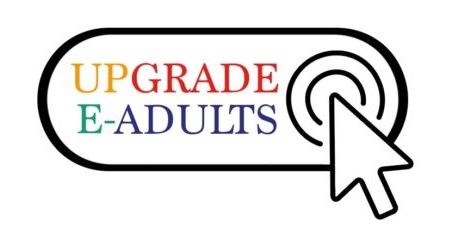
Digital skills are a universe of technological skills, ranging from basic ones such as computer use, to more specific and advanced ones such as software development for artificial intelligence.
They continuously change with the evolution of technologies and will also change over time, because what is now considered ‘digital literacy’, once universally acquired, will be taken for granted.
In the near future, 9 out of 10 jobs will require digital skills.
The digital skills referred to in the world of work and the so-called digital gap are a much wider category, ranging from basic to very specific skills, required for certain professions.
- BASIC SKILLS
The basic digital skills allow us to be digital citizens, we speak in this regard of digital literacy. Basic skills include hardware (e.g. using the keyboard and using the touch screen), software (e.g. creating texts, managing files on laptops, managing privacy on mobile phones), and basic online operations (e.g. email management, search). - INTERMEDIATE SKILLS
These are the skills we need in any workplace, as they include the skills necessary to perform functions related to work, such as content publishing, digital graphics and digital marketing. One of the characteristics of intermediate skills, in particular, is that they easily become obsolete or expand to take account of technological changes. - ADVANCED SKILLS
The advanced skills are those required by specialists in the ICT professions, such as computer programming and the management of computer systems, are typically acquired through advanced formal education, but there are also other training courses.

Digital skills are therefore varied and evolve rapidly at the same rate as digital transformation; another type of classification is between digital hard and soft skills.
Digital hard skills are specific skills in a given technological field, formed by those skills, knowledge, experiences that define a particular specialist or professional figure.
Soft skills are those transversal attitudes that have more to do with the way we behave, interact, and face work. The soft skills required in any job today the ability to collaborate and work in a team; flexibility and curiosity for continuous learning; problem solving attitudes.
Digital soft skills are those skills that have to do with digital, but which are not related to a specifically digital profession, such as that of a data scientist or web developer. They are relational and behavioral skills that allow people to effectively use the new digital tools: they range from the ability to solve technical problems to the identification of their digital skills gaps; from the protection of your data to netiquette in the use of social media; from searching for information online to creating digital content.
The gap in digital soft skills is greater than that in hard skills.
The demand is growing for professionals with experience in digital hard skills, in areas such as advanced analytics, automation, artificial intelligence and cybersecurity. However, digital soft skills such as customer focus and a passion for learning are among the most requested by companies and represent an increasingly important feature for a well-rounded digital professional.
Source IT www.university2business.it
